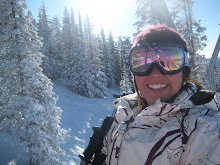As I was looking at the "Songs About X", I got to thinking about how this would be a very interesting way for students to practice using the themes discussed in class. I recently taught a unit on "identity" using the young adult novel The Absolutely True Diary of a Part-Time Indian with my 11th grade class, however this is a theme that can be used in a lot books from Sandra Cisneros's The House on Mango Street to Chris Crutcher's King of the Mild Frontier to James McBride's The Color of Water. Using the novel as a starting place, students could then explore how artists use this theme in songs, and then use that activity as a place to formulate their own song lyrics/poetry about identity. In the middle/high school years, identity formation is crucial to students' development, through joining clubs to making friends, students spend their adolescence trying to figure out their own identity. By exploring this theme in pop music, they can relate that to both a text, the real world, and their own lives.
I would start by showing some popular songs about identity, and have students analyze what sort of identity they are trying to portray. Is it their true identity? Is it an identity they are trying to be? Is the community's opinion of the artist and the artist's opinion of self in conflict like Junior in ATDPTI? Are they trying to fit in or trying to go against community expectations? Some examples could be:
"Look At Me I'm Sandra Dee" - Grease movie soundtrack
"Who are You" - The Who
"Breathe Me" - Sia
"I'm a Bitch" - Meredith Brooks
"Extraordinary Machine" - Fiona Apple
"Autobiography" - Ashlee Simpson
"Survivor" - Destiny's Child
"Real Slim Shady" - Eminem (or any other Eminem song, for that matter)
"Redneck Woman" - Gretchen Wilson
"I'm Just A Girl" - No Doubt
"The Joker" - Steve Miller Band
"That's Not My Name" - The Ting Tings
etc., etc., etc.,
After students examine how identity is portrayed in these or any songs of their choice, they can consider the image the artist is trying to project to the audience, how they achieve this (word choice, repetition, music/genre, etc.), and then they can also explore the elements of poetry within that: rhyme, meter, alliteration, allusion, voice, tone, audience, purpose, etc.....
After exploring the theme of community/personal identity, students would then be asked to write their own poetry/song lyrics based on their community/personal identity, either in conflict or not. What image are THEY trying to project?
As an added assignment, they could follow up with in class presentations or GarageBand or iMovie versions of their identity songs.
Sunday, June 28, 2009
Subscribe to:
Post Comments (Atom)

I really like this idea and feel that it can be adapted for other subject areas too... as I was reading your post, I was thinking that students could not only do this with the theme of a book, but in relation to the art classroom, they could do this in relation to themes of artwork that is being discussed or look at in class. Themes in artwork often times easily relate to themes within contemporary / pop music.
ReplyDeleteThis is really quite a neat idea about getting kids to reflect on their own projected self-image. I think it might do image conscious high schoolers a great deal of good to examine what they are projecting, and I think most high-schoolers are fairly image conscious. I wonder if you would have students write their own unique songs to go along with the music as well, or if that might be a follow up lesson to do with a music teacher to match their own lyrics to music. Nice work!
ReplyDeleteJohn Byrnes
Wow Kim, I would LOVE to be in your class when you teach this unit. Your music selection is fantastic and I really think all of the students would enjoy it. Plus, I think music is naturally part of identity. As adolescents are making their journey towards discovering their identity, they play around with a lot of different genres and search for lyrics they can relate to. I think that you would automatically captivate their attention with these songs, and then you could really delve into a critical/intense discussion about the components of identity.
ReplyDelete